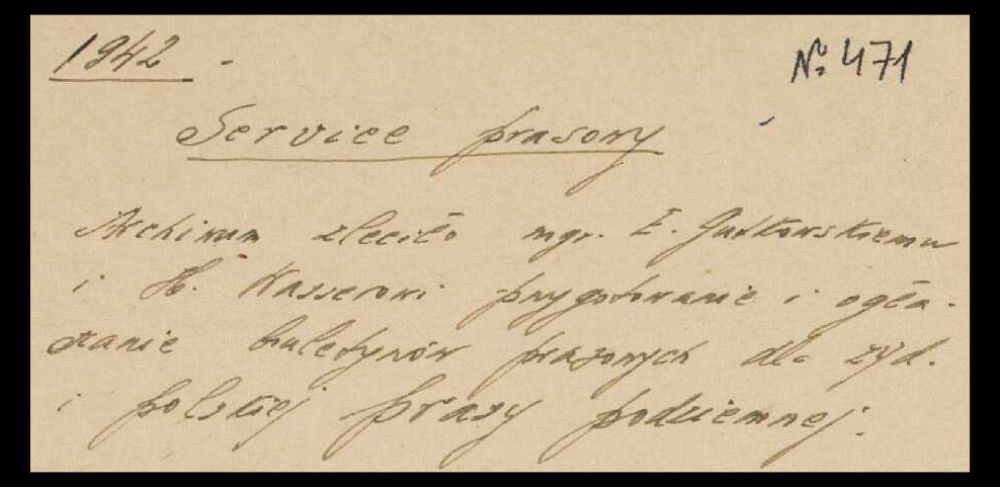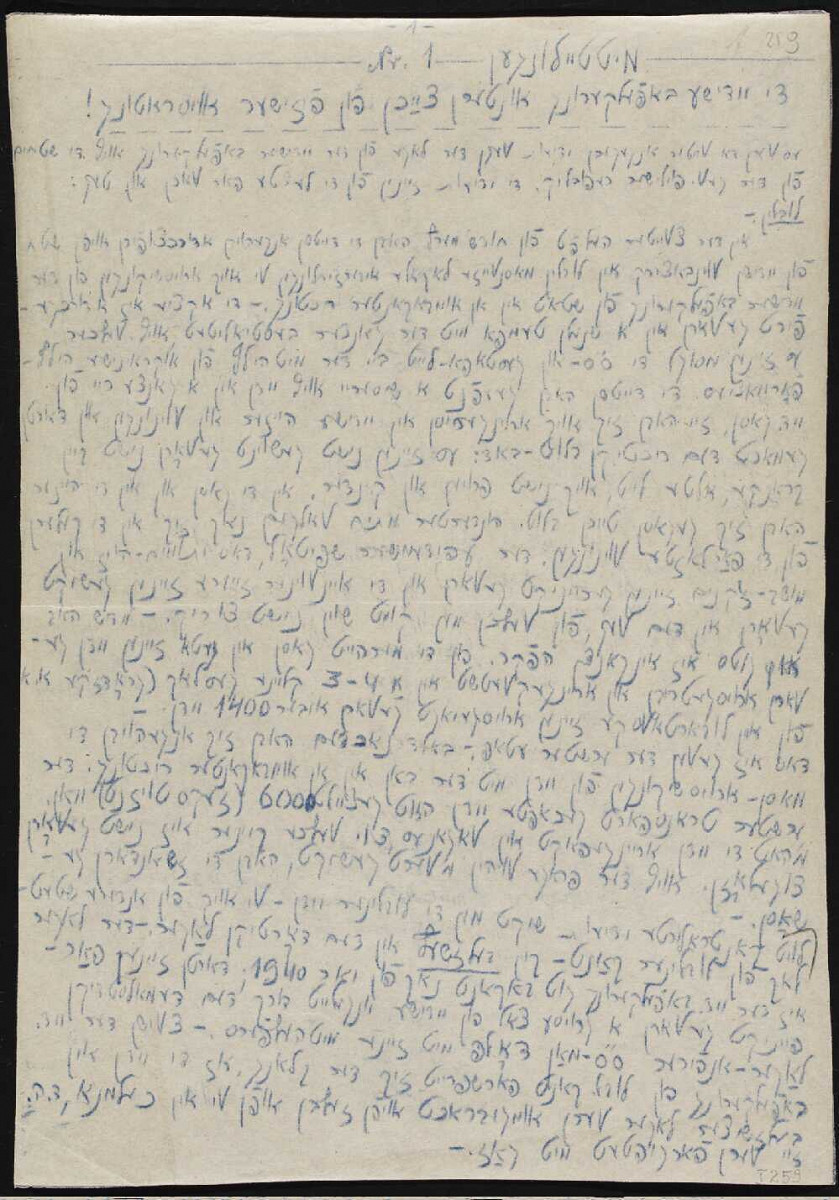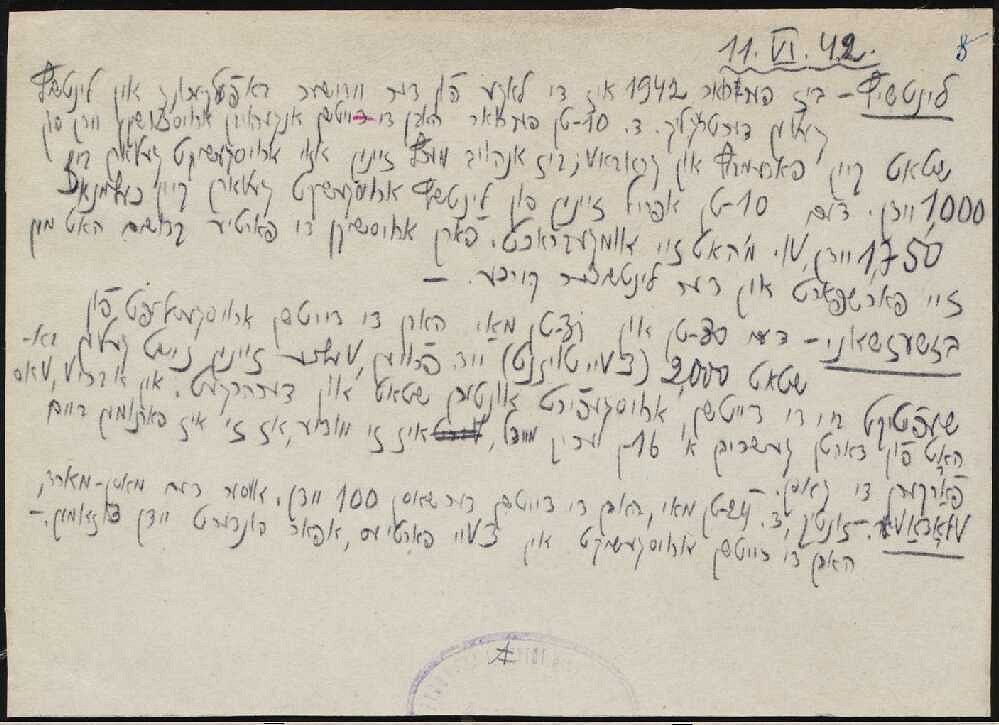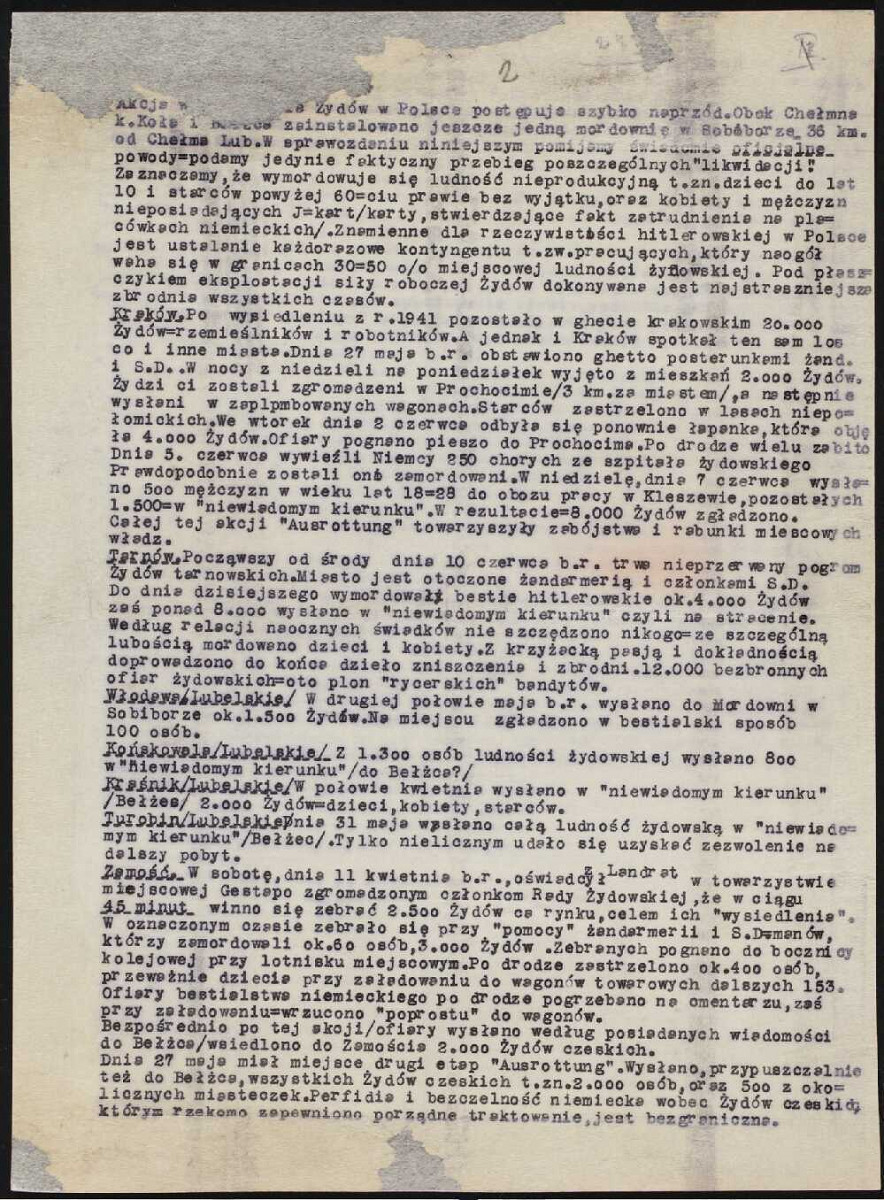- News
- Events
- Oneg Shabbat
- Collections
- Research
- Exhibitions
- Education
- Publishing Department
- Genealogy
- About the Institute
- Bookstore


A note added to Oneg Shabbat bulletins /
One of the most important tasks of the Oneg Shabbat group was to collect information about the fate of Jews in the Polish occupied territories. In Autumn and Winter 1941, defectors from the Eastern territories had arrived in the Warsaw Ghetto, bringing news about mass executions of Jews. Members of the group were interviewing refugees and displaced people, collected personal accounts and testimonies (such as letters). Information about extermination in the Wartheland province, and later also in the General Gouvernement, prompted Oneg Shabbat to intensify their information policy.
When Germans began the operation Reinhardt, it became a direct impulse for Oneg Shabbat to publish a bulletin which would provide information about the extermination to the underground press. Initially, the bulletin was intended to be published in print and the first issue was prepared in this version. The following issues were handwritten (mainly by Eliasz Gutkowski) or typed. One of the editors, Hersz Wasser, called them ’bulletins of the Oneg Shabbat press service’ after the war.

The bulletins were published between March/April 1942 and July the same year, when the Great Deportation began. The first bulletin, dated 27 March 1942, informs about deportation of Jews from the ghetto in Lublin, Izbica Lubelska, Rawa Ruska, Biłgoraj and Lviv to the Bełżec death camp.
Only 15 issues had been preserved. They contain information about acts of violence, murder and executions committed by Germans against Jews in the occupied Polish territories, in such locations as Warsaw, Lublin, Chełm Lubelski, Hrubieszów, Zamość, Szczebrzeszyn, Rejowiec, Trawniki, Kraków, Opole, Tarnów, Rzeszów, Sosnowiec, Zawiercie, Dubienka, Otwock, Tłuszcz, Włodawa and others. There were also occasional reports on the situation of the Jewish communities in other countries, in Holland, Switzerland, France. The notes are short, consisting mostly of estimated date of an event and number of victims. Sporadically, they were expanded with excerpts from testimonies or letters.


Oneg Shabbat bulletin, 24 June 1942
The process of mass murder of Jews is developing quickly. Aside from Chełmno near Koło and Bełżec, another extermination site was installed, in Sobibór, 36 kilometres away from Chełm Lubelski (…) under the guise of exploiting the Jewish labour force, the most horrible crime in history is being committed.
-----------------------------
The first two issues of the bulletin were published in bilingual, Yiddish and Polish versions, the following six bulletins were written in Yiddish only, while the last seven – only in Polish.
The bulletins were reprinted, often directly, by a section of the underground press, especially the press of Dror Hechalutz and Hashomer Hatzair. Bulletins dated 3 and 12 April 1942 can be found in the archives of the Government Delegation for Poland, which confirms that Oneg Shabbat were in contact with Polish resistance.
---
The article based on: Aleksandra Bańkowska, Tadeusz Epsztein, Introduction to Vol. 11 of the full edition of the Ringelblum Archive ’Ludzie i prace Oneg Szabat’.
All bulletins are available in Vol. 11 of the full edition of the Ringelblum Archive ’Ludzie i prace „Oneg Szabat’ ed. Aleksandra Bańskowska and Tadeusz Epsztein. Vol. 11 is available at the Central Jewish Library website (only in Polish).